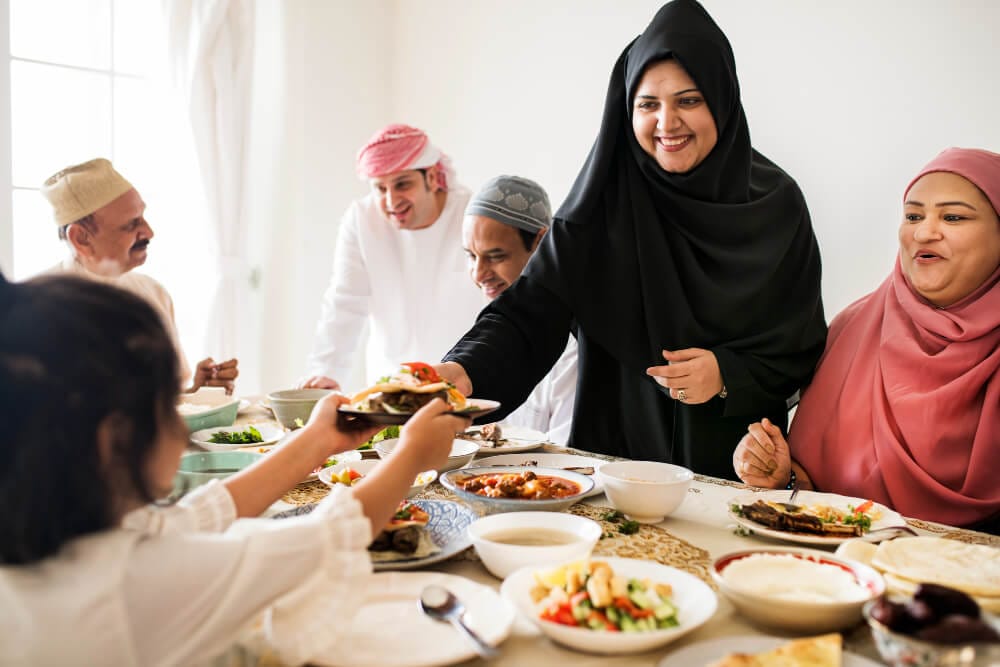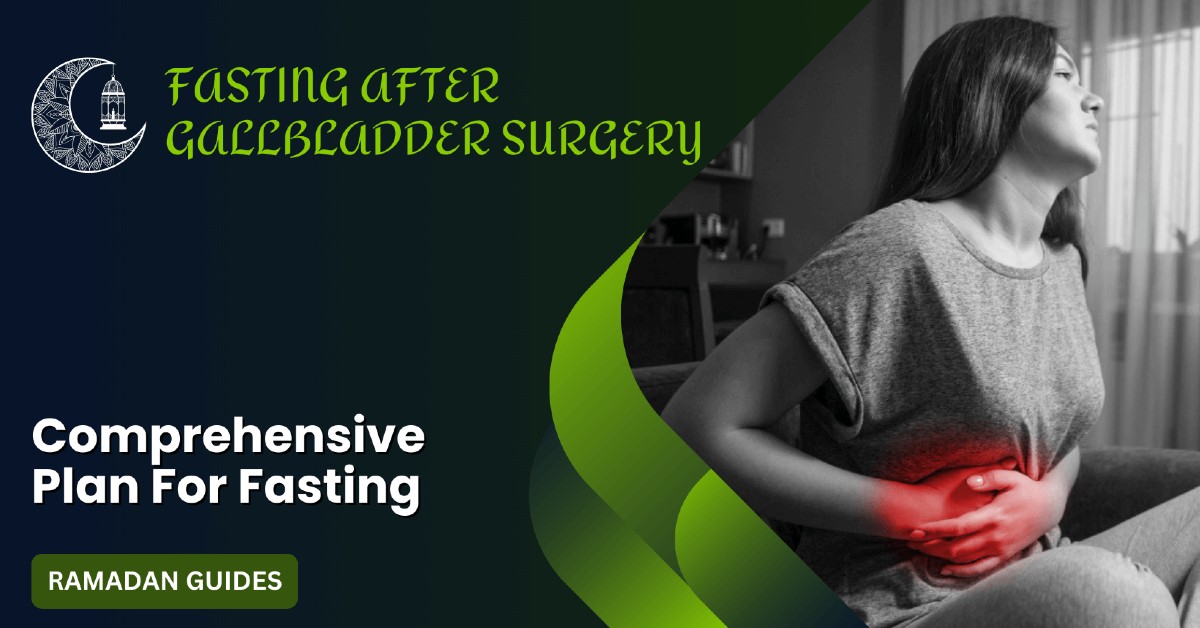Ramadan presents a unique opportunity to revitalize your body through mindful eating and disciplined fasting. During this holy month, understanding the principles of nutrition can profoundly impact your digestive health and overall well-being. So, it is necessary to follow a well-crafted Ramadan nutrition guide.
This guide aims to equip you with practical knowledge on how to nourish your body effectively during Sahur and Iftar, ensuring that you maintain energy levels, optimize digestion, and support your health throughout the fasting period.
Embrace these insights to transform your Ramadan experience into a journey of physical rejuvenation and spiritual renewal.
Ramadan Nutrition Guide: Quick Facts
- Optimize Your Ramadan Diet: Understanding the balance between fasting and feasting during Ramadan is key. Incorporate a variety of foods in Suhoor and Iftar to ensure you’re getting all the necessary nutrients for optimal health.
- Health Benefits of Fasting: Fasting during Ramadan can improve digestive health and support weight management. It’s an opportunity to reset your metabolism and develop healthy eating habits.
- Strategic Eating Is Crucial: Plan your Suhoor and Iftar meals to include a balance of proteins, fats, and carbohydrates. This helps maintain energy levels and prevents overeating.
- Stay Hydrated: Drinking enough water between Iftar and Suhoor is crucial for staying hydrated. Avoid sugary drinks and caffeine, which can lead to dehydration.
- Mindful Eating Practices: Pay attention to portion sizes and the quality of food you consume. Eating slowly and mindfully can enhance digestion and satisfaction from meals.
- Adaptation for Special Needs: Individuals with specific dietary needs or health conditions should consult healthcare professionals to adapt fasting practices accordingly, ensuring a safe and healthy Ramadan experience.

Understanding the Ramadan Diet
Suhoor Essentials
Suhoor is your first meal of the day during Ramadan. It’s eaten before dawn. This meal, a crucial food during Ramadan fasting, should be nutritious to help you manage your energy intake and stay energized throughout the fasting day until Iftar.
Foods rich in fiber and protein are ideal for Suhoor. They release energy slowly throughout the day. Examples include whole grains, eggs, dairy products, and fruits. Drinking plenty of water is also crucial to stay hydrated.
Iftar Importance
Iftar is the meal that breaks your fast after sunset. It starts with dates and water traditionally. This practice helps replenish blood sugar levels quickly.
A balanced Iftar includes carbohydrates, proteins, and vegetables. Foods like rice, meat dishes, and salads are common choices. Hydration remains key here as well; include soups or smoothies to rehydrate effectively.
Balanced Meals
Balanced meals during Ramadan support sustained energy levels and optimal health.
Eating a variety of foods ensures you get all the necessary nutrients. Include complex carbs for energy, lean proteins for muscle repair, healthy fats for satiety, and vitamins from fruits and vegetables.
Skipping processed foods can prevent sudden spikes in blood sugar levels which lead to crashes later on.
Benefits of Fasting for Health
Detoxification Process
Fasting acts as a reset button for your body. It gives your digestive system a break, allowing it to detoxify effectively. This process helps eliminate toxins accumulated over time.
By abstaining from food during fasting days, you encourage your body to focus on cleansing rather than digesting new food. This leads to improved overall health and vitality. Many find that this period of rest aids in resolving minor digestive issues as well.
Metabolic Improvement
Regulating blood sugar levels is crucial for maintaining energy and preventing chronic conditions like diabetes. Fasting has shown significant results in stabilizing blood sugar in healthy individuals.
A consistent fasting schedule can lead to better metabolic health outcomes. It encourages the body to use stored fat for energy, leading to weight loss and reduced risk of cardiovascular diseases.
Mental Clarity
Fasting isn’t just about physical benefits; it also enhances mental clarity and spiritual focus. During Ramadan, many report feeling more focused and mentally alert.
This mental shift is attributed to the physiological effects of fasting, such as improved brain function due to regulated blood sugar levels. The practice also fosters a sense of discipline and self-control, which contribute positively to mental wellness.

Strategies for a Healthy Iftar and Suhoor
Suhoor Essentials
For Suhoor, during Ramadan fasting, prioritizing hydration and nutrient-dense foods with adequate fat intake is key for maintaining weight. This meal sets the tone for your day. It fuels your body until Iftar.
Drink plenty of water to stay hydrated. Include proteins, fibers, and healthy fats in your meal. These nutrients help sustain energy levels throughout the day. Foods like oats, eggs, fruits, and nuts are great options.
Balanced Iftar
Begin Iftar with water and dates. This traditional practice not only honors cultural heritage but also replenishes energy quickly. Dates are rich in natural sugars and nutrients.
After hydrating well, consume a balanced meal that includes vegetables, lean protein, whole grains, and healthy fats. A good balance ensures optimal digestion and health during Ramadan.
Plan Ahead
Planning meals ahead of time can significantly impact nutritional adequacy during Ramadan.
Create a weekly menu for Ramadan fasting that includes various nutrient-rich foods, with adequate fat intake, for both Suhoor and Iftar throughout the day. Consider preparing some components of meals in advance to save time on busy days.
By incorporating these strategies into your daily routine during Ramadan:
- You ensure proper hydration.
- You maintain sustained energy levels.
- Your digestive health benefits from balanced meals.
These habits support overall wellness throughout the fasting period.
Balancing Macronutrients During Ramadan
Protein Intake
During the fasting period of Ramadan, your body needs adequate protein. This is crucial for maintaining muscle mass and aiding recovery. Include sources like meat, eggs, and legumes in your meals.
Proteins are building blocks for your body. They help repair tissues and support immune function. Aim to include a variety of proteins in your diet during Ramadan. This ensures you get all essential amino acids.
Slow Carbs
Opt for slow-digesting carbohydrates such as whole grains. These provide longer-lasting energy, which is vital during fasting hours.
Whole grains, like oats and brown rice, release energy slowly. This helps prevent hunger pangs throughout the day. Avoid refined carbs that can spike blood sugar levels quickly but leave you tired soon after.
Healthy Fats
Incorporate healthy fats into every meal for balanced nutrition during Ramadan periods.
Fats are not only a dense source of energy but also aid in nutrient absorption. Sources include avocados, nuts, seeds, and olive oil. They keep you feeling full longer while providing essential fatty acids.
Sugar Caution
Limit sugar intake to avoid quick energy spikes followed by crashes.
Excessive sugar may lead to an immediate burst of energy but often results in an inevitable crash thereafter. Instead of sweets or sugary drinks, focus on fruits for a natural source of sweetness plus fiber.

Tips for Healthy Ramadan Eating
Portion Control
Practicing portion control during Iftar helps prevent overeating. You’ve balanced your macronutrients; now focus on the amount. Start with water and a few dates to replenish energy levels gently.
Eating slowly allows your body to register fullness, reducing the chance of discomfort. Use smaller plates to naturally limit food intake without feeling deprived.
Fruits and Vegetables
Incorporate various fruits and vegetables in your meals for essential vitamins and minerals. These foods are not only nutritious but also help hydrate your body after a day of fasting.
A colorful plate is a healthy plate. Try including at least three different colored fruits or vegetables in every meal. They can be great as part of the main dish, side dishes, or even as snacks between meals.
Healthier Cooking Methods
Avoid deep-fried foods that can cause indigestion and fatigue. Instead, opt for healthier cooking methods like grilling or baking, which retain more nutrients and are lower in fat. For instance:
- Grill chicken with herbs instead of frying.
- Bake fish with lemon juice for flavor without extra calories.
- Steam vegetables rather than sautéing them in large amounts of oil.
Staying Hydrated During Ramadan
Water Intake
Maintaining your hydration status is crucial. Drink plenty of water between Iftar and Suhoor. This helps prevent dehydration during the fasting hours.
Your body needs fluids to function well. Without enough water, you might feel tired or dizzy. Aim for 8-10 glasses of water in the non-fasting hours.
Avoid Caffeine
Caffeinated beverages are not ideal for hydration. They can increase urine output, leading to fluid loss.
Instead of coffee or tea, choose water or herbal drinks. These options help maintain your serum osmolality, keeping you hydrated without unwanted side effects.
Water-Rich Foods
Incorporate foods high in water content into your meals. Examples include cucumbers and watermelons.
These foods add to your overall fluid intake without making you feel overly full. They’re perfect for keeping hydrated while enjoying varied and nutritious meals during Ramadan.

Managing Dietary Intake and Body Composition
Protein Intake
Ensuring you consume enough protein is crucial during Ramadan. It helps maintain muscle mass. This is important because muscles play a key role in your body’s metabolism.
Protein-rich foods include chicken, fish, beans, and nuts. Aim to include these in your Suhoor (pre-dawn meal) and Iftar (meal to break the fast) during Ramadan fasting to nourish your body. By doing so, you support your muscles and keep your metabolism active.
Physical Activity
Exercise can help prevent weight gain during Ramadan. Even light activities are beneficial. Consider walking or stretching after Iftar.
Regular physical activity boosts energy expenditure. This balance between calorie intake from food and calories burned through exercise is vital for weight maintenance during fasting periods.
Weight Management
Focusing on fat loss while keeping muscle is key for healthy weight management during Ramadan. These strategies encourage fat loss over muscle loss. Here’s how:
- Reduce calorie intake slightly, but don’t skip meals.
- Choose foods high in fiber, like fruits, vegetables, and whole grains, for each meal.
- Eat slowly to improve digestion.
- Include protein at every meal to support muscle mass.
Special Dietary Guidelines for Fasting Groups
Diabetic Care
Managing blood glucose levels during Ramadan fasting is crucial for diabetic patients. You should plan your meals carefully to avoid spikes in blood sugar. Include complex carbohydrates and fiber-rich foods that release energy slowly.
Diabetics must monitor their blood glucose frequently. Adjusting medication according to fasting periods helps prevent hypoglycemia or hyperglycemia. Consultation with a healthcare provider before Ramadan is essential.
Pregnancy Nutrition
Pregnant or breastfeeding women need extra care during fasting. Your nutritional intake must support both you and your baby’s health. Focus on balanced meals rich in vitamins, minerals, and hydration.
Include calcium-rich foods and iron-packed options in your diet. Small, frequent meals are better than large ones during non-fasting hours. Always stay hydrated by drinking plenty of water between Iftar and Suhoor during Ramadan fasting.
Athletic Modifications
Athletes face unique challenges while maintaining performance levels during fasting periods. Modifying training schedules can help align with energy peaks after meal times.
Focus on hydration and nutrient-dense foods when not fasting to fuel your body adequately. Incorporate slow-releasing energy sources like whole grains into Suhoor (pre-dawn meal) to sustain through the day.
Final Note From Dr. Rajarshi Mitra
Navigating Ramadan requires careful consideration of your nutritional needs to maintain both digestive and overall health. You’ve learned the importance of a balanced diet during this holy month, from the benefits of fasting to specific dietary guidelines tailored for various fasting groups.
Embracing strategies for healthy Iftar and Suhoor, balancing macronutrients, staying hydrated, and managing dietary intake plays a pivotal role in supporting your body’s well-being during Ramadan. This collective wisdom empowers you to approach fasting with confidence, ensuring that you fuel your body optimally.
Reflect on these insights and integrate them into your Ramadan routine for a healthier fasting experience. Your commitment to following these guidelines not only enhances your physical health but also enriches your spiritual journey.
Let this Ramadan be a time of renewal for both your body and spirit. Start planning now, and make healthful choices that support both your Ramadan fasting and your faith.
FAQs
How can the Ramadan diet benefit overall health?
Fasting during Ramadan can enhance digestive health, improve blood sugar levels, and support weight management by encouraging discipline in eating habits and food choices.
What are the key strategies for a healthy Iftar and Suhoor?
For a balanced Iftar and Suhoor during Ramadan fasting, include complex carbohydrates for sustained energy release, lean proteins for muscle repair, and plenty of vegetables for vital nutrients. Avoid sugary drinks and overly processed foods to maintain stable energy levels.
How should macronutrients be balanced during Ramadan?
During Ramadan, aim to balance your intake of macronutrients by consuming adequate proteins for muscle maintenance, healthy fats for satiety and hormonal balance, and complex carbohydrates for long-lasting energy throughout the fasting hours.
Can you provide tips for maintaining hydration during Ramadan?
To stay hydrated during Ramadan, drink plenty of water between Iftar and Suhoor. Incorporate hydrating foods like fruits and vegetables into meals. Avoid caffeinated beverages as they may increase dehydration.
How does one manage dietary intake to maintain body composition during Ramadan?
Maintain body composition by focusing on nutrient-dense foods at meal times that are high in fiber, protein, and healthy fats. This approach helps control hunger pangs while supporting muscle mass preservation despite reduced food intake.
Are there special dietary guidelines recommended for those with specific health conditions during fasting?
Individuals with health conditions such as diabetes or gastrointestinal issues should consult healthcare professionals to tailor their diet accordingly during Ramadan. Adjustments might include modifying carbohydrate types or meal timing to ensure safety while observing the fast.



















